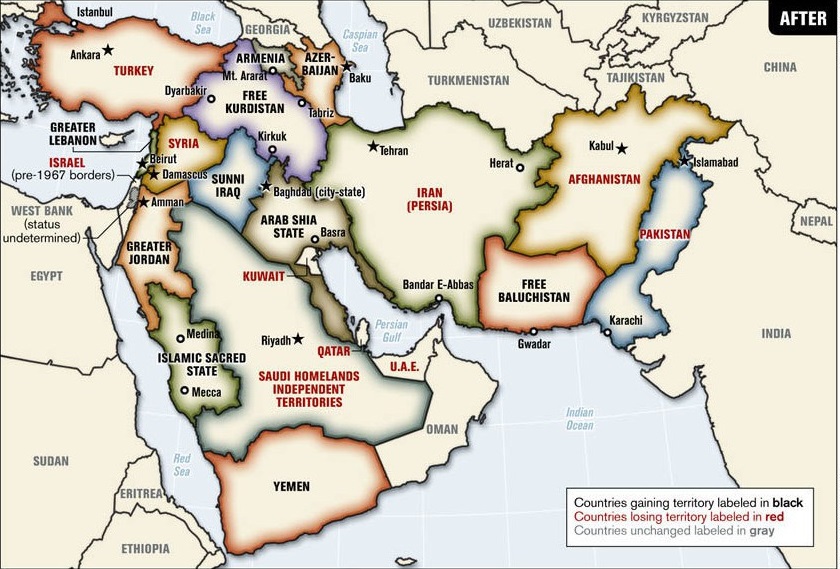
He’s a retired army officer, and a former professor of history at West Point and Boston University. Jon Alterman: Those words by President Jimmy Carter came to be known as the Carter Doctrine, and they changed everything about the way that the United States engaged with the region.Īndrew Bacevich: Prior to the promulgation of the Carter Doctrine in January 1980, from a military perspective, the Middle East really was a marginal concern. Let our position be absolutely clear: an attempt by any outside force to gain control of the Persian Gulf will be considered a threat to vital interests of the United States of America, and such an assault will be repelled by any means necessary, including military force.
PEACEFUL MIDDLE EASTERN COUNTRIES FREE
Jimmy Carter, 1980 State of the Union Address: The Soviet Union is now attempting to consolidate a strategic position, therefore, that poses a grave threat to the free movement of Middle Eastern oil.

As armies and economies shifted from coal to oil-and as Middle East oil production increased-the Middle East became a decisive battleground in this much larger global competition.

Suddenly, the United States had new interests around the world.

government was countering Soviet influence, wherever it emerged. Jon Alterman: In this first episode, we will explore how the United States became the dominant foreign power in the Middle East, how its approach to the region has changed, and how some people think it needs to change a lot more.Īs the Cold War emerged after World War II, the overwhelming priority for the U.S. I’m your host, Jon Alterman, senior vice president, Zbigniew Brzezinski chair in global security and geostrategy, and director of the Middle East Program at the Center for Strategic and International Studies (CSIS) in Washington, D.C. This is the United States in the Middle East podcast miniseries. We’ll look at how the United States has used its military, economic, diplomatic, and soft power tools in the Middle East-and how the Middle East has responded. I’ll talk to some of the preeminent foreign policy experts and former policymakers that have helped shape U.S. Over the next seven weeks, Babel is going to take you on a deep dive into the United States’ experience in the Middle East. But as the United States plunged into the Cold War, the Middle East was too important to abandon. As a result, the United Kingdom and France dominated the region for two decades, and when they began to leave after World War II, the United States replaced them, rarely enthusiastically, and often reluctantly. With isolationist sentiments rising domestically after the war, the United States didn’t push back. Jon Alterman: As part of the Paris Peace Conference in 1919, the United States sponsored the King-Crane Commission, a 42-day trip to the region to investigate the Arab world’s potential for self-determination, but the entire exercise was stillborn.Įven before the United States had entered World War I, the United Kingdom and France had secretly agreed to divvy up the Middle East between themselves. They were coming from what they saw as an anticolonial background with promises of self-determination and the expansion of liberalism and democratic movements, and these were really embraced during that period. Of course, part of that was that they were not British. Karim Makdisi: The United States had a position of great promise-as far as the Arabs were concerned in the Middle East-coming in with the Woodrow Wilson era where there was so much welcome for American engagements in the Arab world and in the Middle East. According to Karim Makdisi, a professor of international relations at the American University of Beirut, that was welcome news in the region. Of those 14 points, he dedicated one to the former Ottoman territories in the Middle East. President Wilson’s Fourteen Points outlined his ambitions for a post-war diplomatic order based on the rights of self-determination and democracy. A century ago, coming out of World War I, the United States had big plans for the Middle East. government thought the choices would be easy. She represented the United States in countries recovering from civil war and countries fighting extended insurgencies, but to her, the Middle East forces some of the hardest choices on the U.S. Patterson was also ambassador to Pakistan, Colombia, and El Salvador, and she served at the United Nations. During the Arab Spring, she was ambassador to Egypt. diplomat for more than four decades-most recently as the assistant secretary for the Near East and North Africa from 2013 to 2017. Anne Patterson: There’s no place where they clash more than in the Middle East-our values and our interests.


 0 kommentar(er)
0 kommentar(er)
